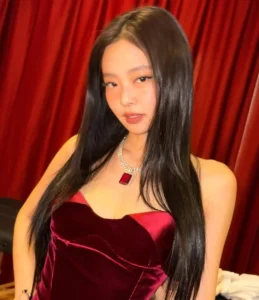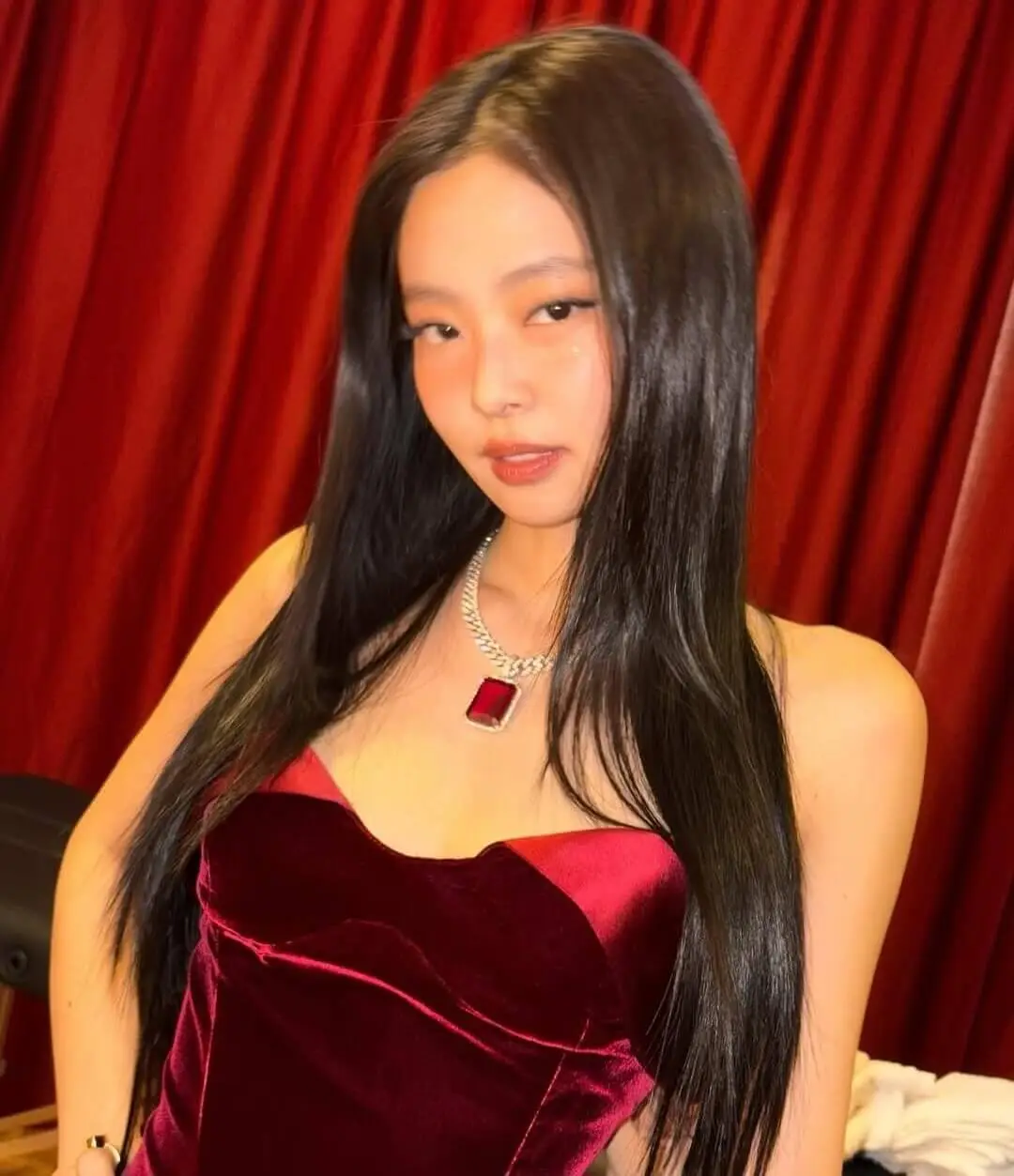Explore BLACKPINK’s JENNIE solo track like JENNIE with detailed analysis of its Korean lyrics. Learn the meaning behind phrases like “얼말 줘도 못해, 서커스짓” and “포징 한 번에 만들어, mosh pit,” while understanding cultural references, language play, and K-pop performance insights.

Introduction — Song & Artist Overview
BLACKPINK’s JENNIE has solidified her place as a solo artist with a bold and confident style. Her 2025 track, like JENNIE, reflects individuality, resilience, and performance charisma. While the song includes both English and Korean lyrics, this post focuses on the Korean lines, which reveal how contemporary K-pop lyrics convey identity, self-expression, and cultural nuance.
Blending Western pop and hip-hop influences with playful use of the Korean language, JENNIE’s Korean lines are packed with metaphors and creative expressions crafted specifically for the song rather than borrowed from common idioms. Expressions such as “바비가 처키가 되기 전에” convey complex ideas about identity, caution, and stage persona in a concise, memorable way, highlighting both her artistry and linguistic creativity.
Key Korean Phrases & Their Meaning
1. “얼말 줘도 못해, 서커스짓”
Literal Translation: “No matter how much you give me, I can’t do a circus act”
Phrase Breakdown
- “얼말” – a colloquial contraction of “얼마를” (how much). This shortening is common in spoken Korean, giving the phrase a casual, rapid, and confident tone.
- “줘도 못해” – “even if you give (it to me), I can’t do it.” Expresses refusal or rejection.
- “서커스짓” – literally “circus act,” used metaphorically to describe exaggerated, over-the-top, or performative behavior that someone might be pressured to do.
Full Interpretation
The line conveys more than a simple “no.” It means JENNIE refuses to compromise her individuality or indulge in exaggerated acts, no matter the reward or incentive. She asserts her independence and self-possession, emphasizing that her identity cannot be bought or manipulated.
Cultural & Linguistic Nuances
- Contraction “얼말”: Adds a playful, familiar, and colloquial tone, as if speaking directly to the audience in a confident, fast-paced manner.
- “서커스짓”: Borrowed from English “circus,” but in Korean slang, it represents chaotic, performative, or overly dramatic behavior.
2. “포징 한 번에 만들어, mosh pit“
Literal Translation: “One pose and I create a mosh pit”
This line emphasizes JENNIE’s stage presence: a single confident pose is enough to energize and excite the audience, evoking intense crowd interaction metaphorically.
3. “여러 셀럽들 속에, 내 DNA”
Literal Translation: “Among many celebrities, my DNA”
In this line, JENNIE asserts her individuality in a crowded celebrity landscape. 내 DNA symbolizes her innate uniqueness, talent, and identity that distinguish her from others. K-pop idols often navigate a competitive environment, and this lyric emphasizes that her distinctiveness is intrinsic and cannot be replicated.
Deeper Interpretation: The use of “DNA” as a metaphor communicates authenticity and signature style, reinforcing that her personal brand and abilities are irreplaceable.
4. “바비가 처키가 되기 전에”
Literal Translation: “Before Barbie becomes Chucky”
This metaphorical line references two cultural icons: Barbie, representing the idealized doll, and Chucky, the horror doll from Child’s Play. The lyric suggests JENNIE is aware of the fine line between perception and distortion. She aims to maintain her identity and composure before external pressures or misinterpretations twist her image.
5. “터트려봐, 그럼 더 큰 홀에서 만나는 거야”
Literal Translation: “Go ahead and burst it, then we’ll meet in a bigger hall”
Here, JENNIE reframes potential criticism or obstacles as opportunities. 터트려봐 (go ahead and burst it) refers to challenges or provocations, while 더 큰 홀에서 만나는 거야 (we’ll meet in a bigger hall) implies turning these trials into larger achievements. The lyric conveys resilience, optimism, and the idea that setbacks can lead to even greater stages and successes.
Interpretive Insight: K-pop often celebrates resilience, and this line exemplifies transforming confrontation into motivation for growth and performance.
6. “제니를 keep shadin’”
Literal Translation: “Keep shading Jennie”
In this line, JENNIE addresses critics or “haters.” The English slang “shade” implies subtle or overt criticism. By saying keep shadin’, she acknowledges negativity but reframes it as inconsequential or even energizing. It demonstrates confidence, playful defiance, and the ability to turn criticism into personal motivation.
7. “예술작품엔 필요해, frame이 / Yes, I’m guilty, 잘난 게 죄니 (mm)”
Literal Translation: “Artworks need a frame / Yes, I’m guilty, is being good a sin?”
This lyric plays with literal and figurative language. Frame symbolizes structure, boundaries, or context necessary to showcase brilliance. The rhetorical question 잘난 게 죄니? challenges societal expectations and criticism for showing confidence or excellence. It’s a subtle way to assert pride while acknowledging cultural norms.
Language Play & Identity in like JENNIE
like JENNIE blends language play with expressions of identity. K-pop lyrics often mix Korean, English, and slang to convey meaning beyond literal words. JENNIE uses contractions, metaphors, and cultural references to add personality and attitude.
Colloquial contractions like “얼말” (short for 얼마를) make the lyrics feel fast-paced and conversational, giving a sense of direct communication while emphasizing her confidence and independence. Such contractions are common in contemporary Korean youth speech and K-pop lyrics to convey energy and intimacy.
Metaphors such as “바비가 처키가 되기 전에” (Before Barbie becomes Chucky) condense complex ideas about identity and caution into a short, memorable phrase. Words like “서커스짓” (circus act) or references to mosh pit convey stage presence, humor, and defiance, letting fans engage with both literal and figurative meanings.
Repetition and dynamic expressions reinforce JENNIE’s individuality and charisma, making her words an extension of her stage persona and highlighting the playful, rebellious spirit often celebrated in K-pop.
Code-switching between Korean and English, such as in “keep shadin’”, introduces hip-hop vernacular and rhythm that Korean alone might not capture. This bridges domestic and global audiences while maintaining a Korean linguistic identity.
In short, the artistry of like JENNIE lies not just in melody or choreography, but in its linguistic strategies—contractions, metaphors, cultural references, and code-switching—which convey nuanced meaning, personal empowerment, and cross-cultural appeal.
Overarching Themes & Cultural Insights
Analyzing these Korean phrases from like JENNIE reveals several recurring motifs in contemporary K-pop lyrics:
- Self-confidence and Individuality: Many lines emphasize control over one’s identity and image, reflecting the importance of personal branding and independence in K-pop.
- Turning Criticism into Motivation: Lines like 터트려봐, 그럼 더 큰 홀에서 만나는 거야 and 제니를 keep shadin’ show how negative attention is reframed as energy for performance and growth.
- Performance and Stage Presence: Visual metaphors such as posing, mosh pit, and hall convey charisma, audience engagement, and the impact of a single confident action.
- Cultural and Linguistic Layering: The lyrics mix Korean, English, and creative expressions, allowing nuanced communication and connecting with both domestic and international audiences.
- Youthful Defiance and Humor: Wordplay, invented expressions, and pop culture references reflect the playful yet assertive sensibilities of contemporary Korean youth.
Learning Takeaways for Fans and Korean Learners
Studying these lyrics provides valuable lessons for both K-pop fans and learners of Korean:
- Context Matters: Understanding Korean lyrics often requires looking beyond literal translation to cultural context, performance, and metaphor.
- Hybrid Language Use: K-pop lyrics frequently blend English, Konglish, and slang into Korean phrases to enrich meaning, maintain rhythm, and appeal to a global audience.
- Cultural References: Western and Korean pop culture references are used to add humor, nuance, or commentary, as in 바비가 처키가 되기 전에.
- Self-Expression and Empowerment: Phrases like 잘난 게 죄니? demonstrate personal confidence and playful challenge to societal expectations.
- Performance Awareness: Lyrics such as 포징 한 번에 만들어, mosh pit show how K-pop artists convey stage presence, energy, and interaction with fans through wordplay.
By analyzing JENNIE’s Korean lyrics in detail, learners can improve their understanding of contemporary Korean speech patterns, metaphorical language, and pop culture awareness, while fans can gain a clearer sense of the creativity and thought behind the lyrics.
Conclusion
BLACKPINK’s like JENNIE shows that K-pop lyrics are more than catchy hooks; they reflect linguistic creativity, cultural references, and performance imagery. Key Korean lines, when examined closely, reveal layers of meaning:
- “얼말 줘도 못해, 서커스짓” — a contraction of “얼마를 줘도 못해” (“No matter how much you give me, I can’t do a circus act”). This emphasizes maintaining individuality under pressure and refusing to perform exaggerated acts for reward or approval.
- “포징 한 번에 만들어, mosh pit” — highlights JENNIE’s stage presence: one confident pose energizes the audience metaphorically like a mosh pit.
- “바비가 처키가 되기 전에” — preserving identity and composure before external influences distort perception.
- “터트려봐, 그럼 더 큰 홀에서 만나는 거야” — turning challenges or criticism into opportunities for growth and larger success.
- “제니를 keep shadin’” — using criticism or “shade” as motivation rather than being discouraged.
- “예술작품엔 필요해, frame이 / 잘난 게 죄니?” — balancing pride in one’s abilities with cultural reflection, acknowledging excellence without shame.

